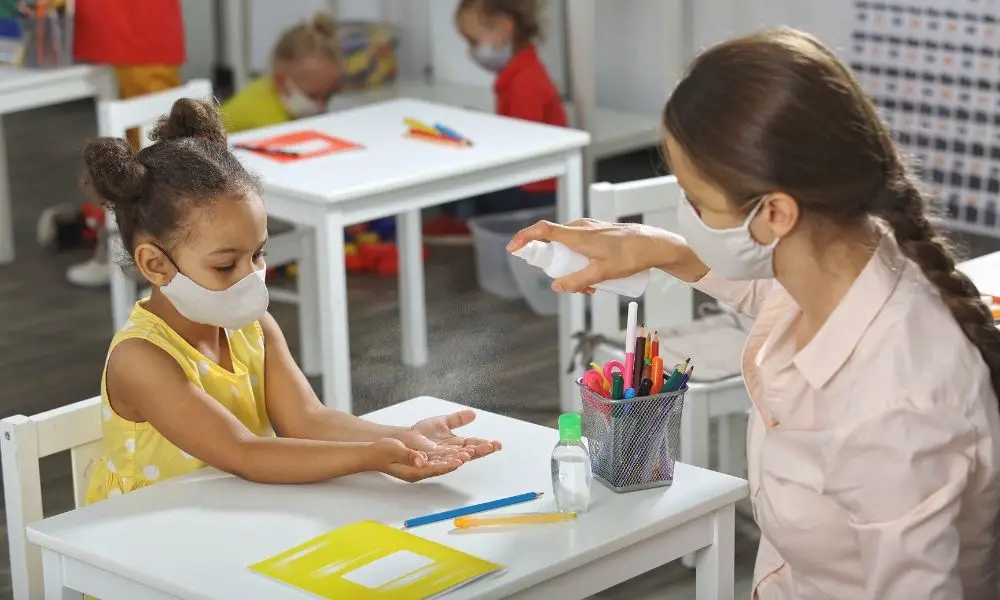

It’s a known fact that children imitate everything adults do, even teenagers. What they see another do, they copy and model the same behavior. However, with personal hygiene habits, we can’t be lenient. So, here’s a list of four topics to teach students about hygiene.
The most important thing a student learns from preschool and beyond is to wash their hands often to help prevent the spread of unwanted germs. When we sit down with students and teach them, we need to model the basic standards that the CDC recommends, such as scrubbing for 20 seconds and drying off with a paper towel.
As you teach your students, consider telling them to count to 20 in their head or sing a song to themselves as they wash up. Remind the students that washing their hands can prevent many viruses from spreading and promotes a healthier classroom environment.
If a person coughs or sneezes, they often cover their mouth to prevent droplets from spreading. Although it’s essential to teach this habit, many don’t bother to cover their mouth or nose. Instead, they cough into the air or onto other students or surfaces.
Prevent the spread of illness by teaching students that spreading germs can make our best friends sick, and we shouldn’t sneeze or cough unless we do it into our elbows or with a tissue. Also, if a child does cough, encourage them to wear a facemask to prevent the spread of germs.
Cleaning the teeth is something we learn at a young age to promote long-term dental health. So, to prevent students from coming down with cavities or worse, encourage them to practice brushing their teeth at home with their family to make it a daily habit.
Furthermore, teeth brushing also falls on the type of toothbrush used. For example, a child that’s four years old won’t know how to use a regular toothbrush. So, use a miniature version instead until they grow out of it.
We recommend introducing this health education topic to middle and high schoolers; as they go through puberty, they won’t fully know what’s right for them to use without a lesson on skincare.
Many of us struggle with skincare, especially when it comes to sensitive and dry skin issues. Teach your students about skin types and select the proper skin treatment.
As students age, they’ll need to get in the routine of developing a self-care plan to help them take care of their health.
As we learn about the different ways to prevent germs, the best part to start with is using these five topics to teach students about hygiene. Help impact students’ lives by teaching about personal hygiene in and out of the classroom.
Want to bond over unexpected activities? Look at these unconventional ways to connect with your…
Burnout isn’t just something that happens to CEOs. For moms homeschooling littles, it’s a very…
When it comes to long-distance motorcycling, comfort, reliability, and smart engineering can make or break…
Flowers have seen significant transformation over time; online flower shopping is increasingly common now for…
Learn essential first-time landlord tips for success, from tenant screening to property maintenance. These strategies…
Every business will produce some form of waste. The real task isn’t preventing waste entirely—it’s…